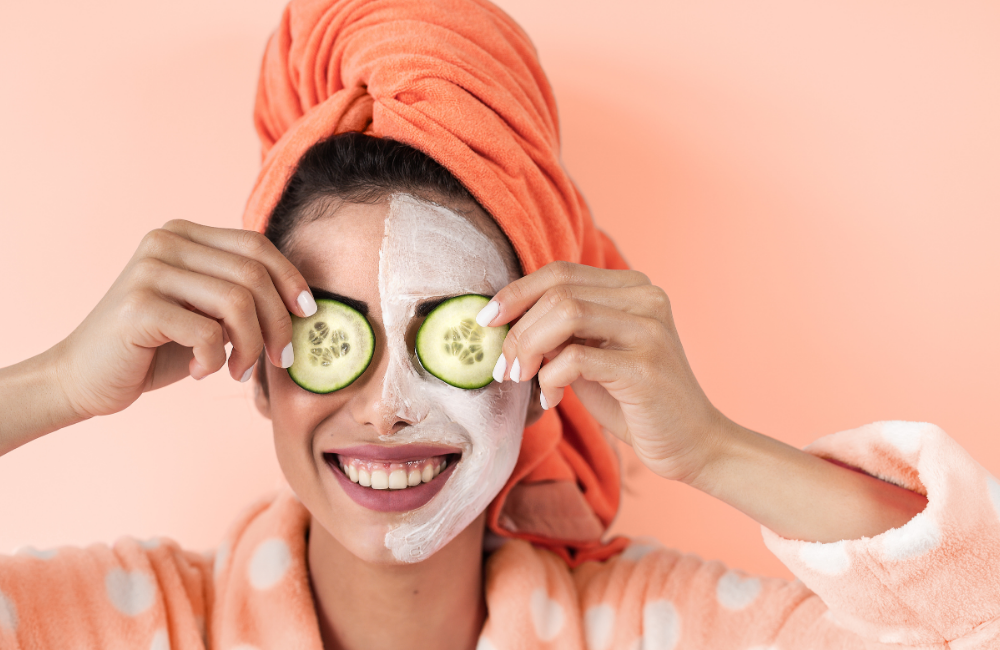Skin Tips
Maintaining healthy skin is essential not only for aesthetics but also for overall health. The skin is the largest organ of the human body, playing various vital roles such as protecting against external agents, regulating body temperature, and synthesizing vitamin D, which is crucial for bone health. Additionally, the skin acts as a physical barrier, preventing the entry of microorganisms that could cause infections and other diseases.
Healthy skin also indicates internal balance. Often, health problems such as dehydration, nutritional deficiencies, and hormonal imbalances first manifest in the skin. Therefore, taking care of the skin goes beyond simple aesthetic concerns; it’s about promoting overall well-being.
Essential Skincare Routine
A skincare routine is fundamental to maintaining its health. This includes cleansing, moisturizing, and protection. Proper cleansing removes impurities, excess oil, and dead cells, preventing issues like acne and irritations. It is important to choose products suitable for your skin type—dry, oily, combination, or sensitive—to avoid damage.
Moisturizing is equally crucial as it helps maintain skin elasticity and prevent dryness, which can lead to cracks and inflammation. Creams and lotions should be applied daily, preferably after a shower when the skin is still damp and more receptive.
Sun protection is perhaps one of the most important and often neglected steps. Excessive sun exposure without adequate protection can cause burns, accelerate skin aging, and increase the risk of skin cancer. Daily use of sunscreen, even on cloudy days, is essential to prevent these damages.
Nutrition and Hydration
In addition to external care, skin health also depends on internal factors such as nutrition and hydration. A diet rich in vitamins, minerals, and antioxidants significantly contributes to healthy skin. Foods like fruits, vegetables, nuts, and fish, rich in vitamins C, E, omega-3, and other nutrients, help combat free radicals responsible for premature skin aging.
Adequate water intake is another crucial factor. Dehydration can leave the skin dry and less elastic, increasing the likelihood of wrinkles and sagging. Drinking at least two liters of water a day helps keep the skin hydrated from within, promoting a younger and healthier appearance.
Emotional and Social Impact
Skin health also has a significant impact on self-esteem and social interactions. Skin problems like acne, rosacea, or psoriasis can deeply affect a person’s confidence, leading to social isolation and even psychological issues like anxiety and depression. Therefore, taking care of your skin is also a way of taking care of your mental health.
Prevention and Specific Care
It’s also important to adopt preventive measures and specific care for different skin types and conditions. For example, people with oily skin should seek products that control sebum production, while those with dry skin should invest in richer, more nourishing products. People prone to conditions like melasma or acne require additional care, such as the use of acids, peels, and regular dermatological treatment.
Conclusion
Maintaining healthy skin is a combination of external care, a balanced diet, adequate hydration, and sun protection. Besides improving appearance, these practices promote overall health and well-being. Well-cared-for skin not only protects the body from external aggressions but also reflects a balanced and healthy life, positively impacting self-esteem and quality of life. Therefore, investing in skin health is an investment in overall health.
Bonus Tips:
Adding humidifiers to your environment can help keep your skin hydrated, especially in dry climates. The extra moisture in the air prevents your skin from losing its natural hydration, complementing your daily skincare routine.
Fruits that can help hydrate your skin:
Watermelon, cucumber, strawberry, orange, melon, pineapple, and kiwi. These fruits are rich in water and essential nutrients.
Register with hest

